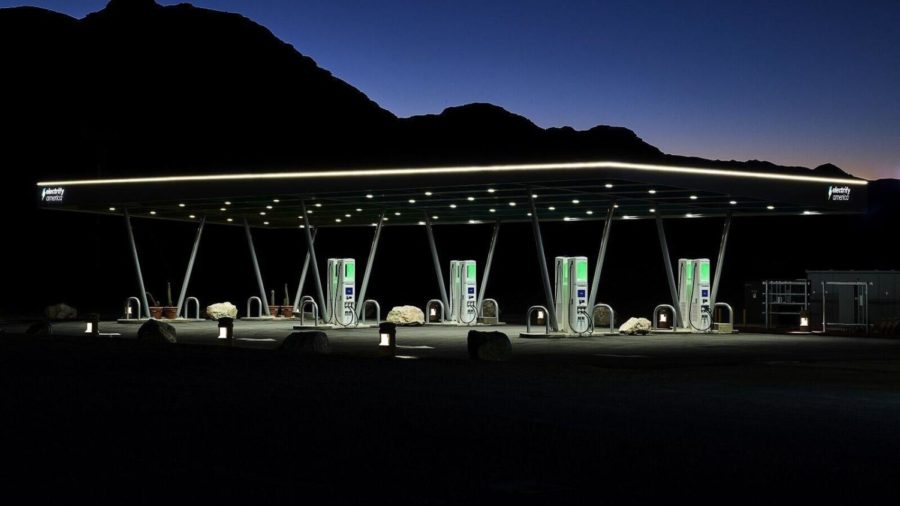California to Benefit from EV Infrastructure
The California Energy Commission (CEC) has approved a three-year, $1.4 billion plan to help California achieve its electric vehicle charging and hydrogen refueling goals. (Electrify America)
November 16, 2021
The California Energy Commission (CEC) has approved a $1.4 billion plan, focusing on the state’s goal to build and expand infrastructure for electric vehicle (EV) charging and hydrogen fueling. The three-year funding initiative comes on the heels of President Joe Biden signing a one trillion-dollar federal infrastructure bill into law one day prior. Together, both plans make a potentially significant investment in clean energy in California while bolstering zero-emissions mobility.
Supporting California Governor Gavin Newsom’s executive order to phase out the sale of new internal combustion engine (ICE) passenger vehicles by 2035, the CEC plan increases the state’s Clean Transportation Program budget by a multiple of six. This funding is meaningful since the Golden State is the nation’s largest EV market, accounting for approximately half of all U.S. EV sales.
“These dollars close the 2025 infrastructure funding gap so that access to charging and hydrogen fueling isn’t a barrier for those exploring cleaner transportation options,” California Lead Commissioner for Transportation Patty Monahan said in a statement.
The CEC’s $1.4 billion plan will support three primary areas of clean mobility, with $314 million in funding going to light-duty electric vehicle charging infrastructure, $690 million for medium- and heavy-duty zero-emission vehicle infrastructure, and $244 million dedicated to zero-emissions vehicle manufacturing via initiatives with California-based automakers.
In addition to the CEC funding plan, the California Air Resources Board (CARB) will soon be deciding on an additional $1.5 billion in clean transportation incentives, including consumer vehicle rebates and heavy-duty equipment investments. California should receive another $384 million from the newly passed federal infrastructure legislation to help expand its network of EV chargers and hydrogen fueling stations.
Beyond those clean energy funding sources, the state can also compete for $2.5 billion in federal grants to make EV charging more accessible to drivers. With automakers from Audi to Volvo coming to market with new EVs and ambitious electrification strategies, the accessibility to charging stations is an ever-increasing priority. One CEC report surmises California will need 1.2 million charging stations by 2030 based on EV demand projections. As such, electric charging companies like ChargePoint, EVgo, and Electrify America anticipate large-scale build-outs ahead.
































































































































































